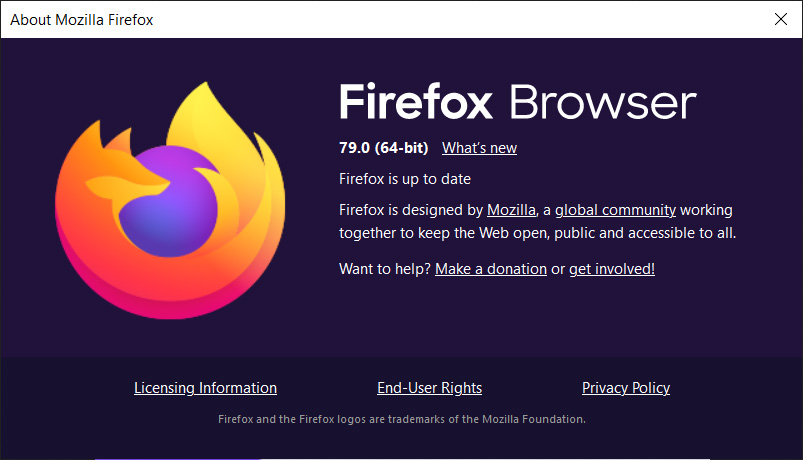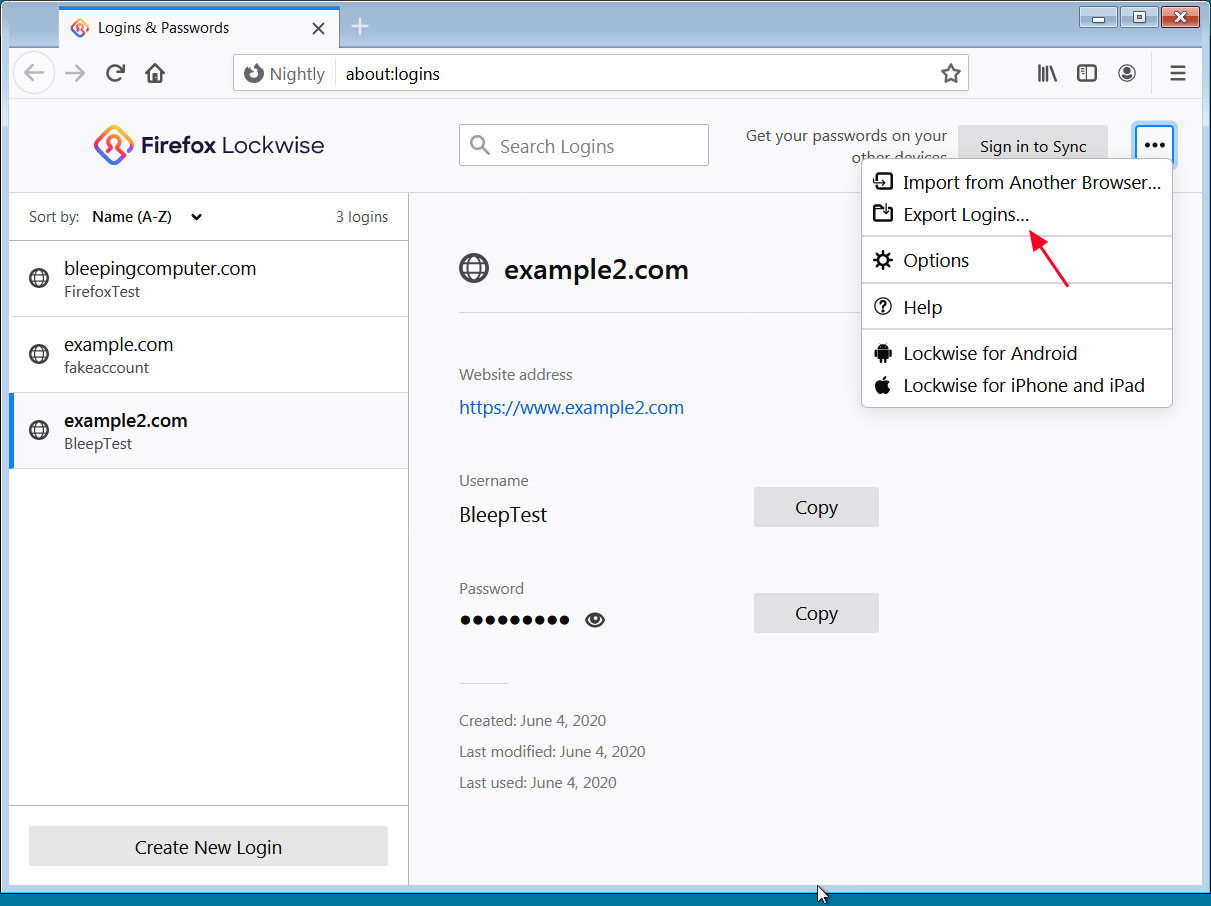BOOK THIS SPACE FOR AD
ARTICLE AD
Mozilla has released Firefox 79 on July 28th, 2020, to the Stable desktop channel for Windows, macOS, and Linux with minor improvements and bug fixes.
This release is minimal, with only a few bug fixes and improvements. The most noteworthy change is that you can export saved login credentials to a CSV file that can then be imported into other password managers.
A new Enhanced Tracking Protection 2.0 feature was supposed to have been released with Firefox 79, but Mozilla appears to have pulled the feature before release.
Windows, Mac, and Linux desktop users can upgrade to Firefox 79 by going to Options -> Help -> About Firefox and the browser will automatically check for the new update and install it when available.

With the release of Firefox 79, all other Firefox development branches have also moved up a version bringing Firefox Beta to version 79 and the Nightly builds to version 80.
You can download Firefox 79 from the following links:
Firefox 79 for Windows 64-bit Firefox 79 for Windows 32-bit Firefox 79 for macOS Firefox 79 for Linux 64-bit Firefox 79 for Linux 32-bitIf the above links haven't yet been updated for Firefox 78, you can also manually download it from Mozilla's FTP release directory.
Below you can find a list of the major changes and improvements in Firefox 78, but for those who wish to read the full release notes, you can do so here.
You can get the list of all security vulnerabilities addressed in Firefox 79 here.
Export saved login credentials from Lockwise
With this release, Mozilla has made it so you can export login credentials saved in the built-in Lockwise password manager.

After exporting the passwords, they will be saved as a CSV file, and when opened, will be visible in plain text.
 Exported credentials
Exported credentialsThis CSV file can then be used to import your credentials into a different password manager or used as an offline backup.
Other bug fixes, improvements, and developer changes
New features:
We’ve rolled out WebRender to more Windows users with Intel and AMD GPUs, bringing improved graphics performance to an even larger audience.
Firefox users in Germany will now see more Pocket recommendations in their new tab featuring some of the best stories on the web. If you don’t see them, you can turn on Pocket articles in your new tab by following these steps.
Fixes:
Several crashes while using a screen reader were fixed, including a frequently encountered crash when using the JAWS screen reader.
Firefox Developer Tools received significant fixes allowing screen reader users to benefit from some of the tools that were previously inaccessible.
SVG title and desc elements (labels and descriptions) are now correctly exposed to assistive technology products such as screen readers.
Enterprise:
A number of bug fixes and new policies have been implemented in the latest version of Firefox. You can see more details in the Firefox for Enterprise 79 Release Notes.
Updates to the password policy allow admins to require a primary password (formerly called master password. Previously the policy could disable the primary password but not force a primary password. Users required to use a primary password will only be asked to create a primary password the first time they try to save a password.
Developer:
Newly added asynchronous call stacks let developers trace their async code through events, timeouts, and promises. The async execution chains are shown in the Debugger’s call stack, but also for stack traces in Console errors and Network initiators.
Erroneous network responses with 4xx/5xx status codes display as errors in the Console, making it easy to understand them in the context of related logs. The request/response details can be expanded or resent for quick debugging.
JavaScript errors are now visible not only in the Console, but also in the Debugger. The relevant line of code will be highlighted and display error details on hover.
Opening SCSS and CSS-in-JS sources from the Inspector now works more reliably thanks to improved source map handling across all panels.
Inspecting accessibility properties from the browser context menu is now available to all users by default.
.png)















 Bengali (Bangladesh) ·
Bengali (Bangladesh) ·  English (United States) ·
English (United States) ·